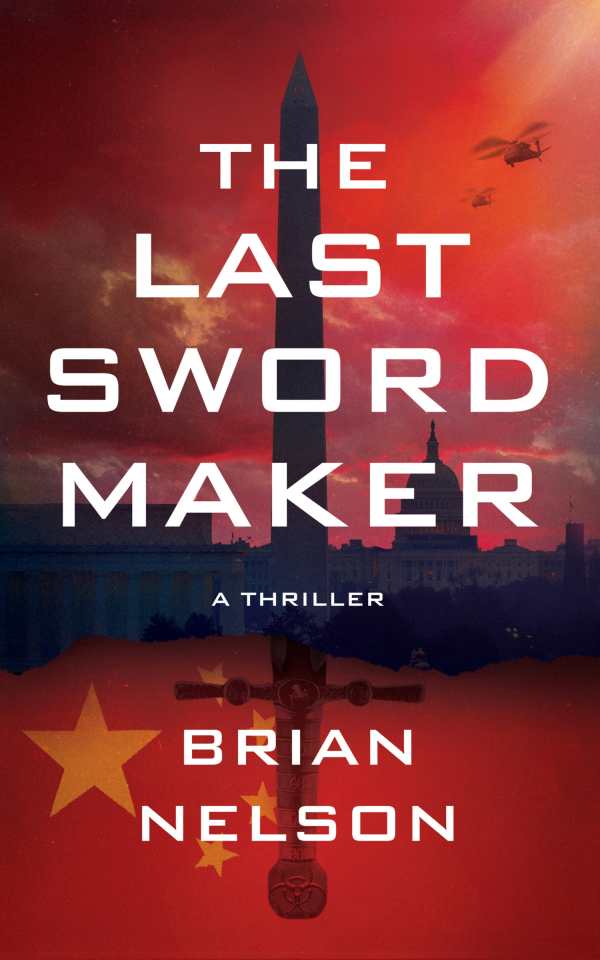The Last Sword Maker
A terrifying vision of future warfare in the vein of Tom Clancy’s and Michael Crichton’s novels, Brian Nelson’s The Last Sword Maker follows a horrific outbreak in Tibet that proves to be a targeted weapons test—one that successfully attacks specific genetic traits.
The test sets up a global power imbalance: whichever country first reaches the replication point of AI-powered nanorobotics will gain the upper hand. Knowing the Chinese are nearing the tipping point, the US gathers top scientists under the supervision of a ruthless admiral. The two nations enter a technological cold war in a race to come out on top; in the process, they unleash a powerful new force with earth-shattering ramifications.
With their incredible characterization and dialogue, the US admiral and the Chinese leader balance each other well; both deal with achieving their goals and maintaining morality. The Chinese leader eschews morality to ensure that his nation comes out on top; the admiral struggles to balance justified killing with his own humanity.
Scientific and technological aspects are extrapolated from the present day to terrifying heights. They are well explained and incorporated. Solving the replication issue not only spurs the nations to try reaching viability first, but it leads to an unexpected twist that opens up the possibility of future books.
The story’s political intrigue is intense; sabotage and espionage attempts mount its tension and pressure. The plot takes some questionable leaps of faith; they don’t detract from the overall story but feel jarring until the plot rights itself. Intense action and frequent viewpoint changes help to offset those moments well.
The Last Sword Maker is a powerhouse near-future thriller with explosive action and exciting science.
Reviewed by
John M. Murray
Disclosure: This article is not an endorsement, but a review. The publisher of this book provided free copies of the book to have their book reviewed by a professional reviewer. No fee was paid by the publisher for this review. Foreword Reviews only recommends books that we love. Foreword Magazine, Inc. is disclosing this in accordance with the Federal Trade Commission’s 16 CFR, Part 255.

